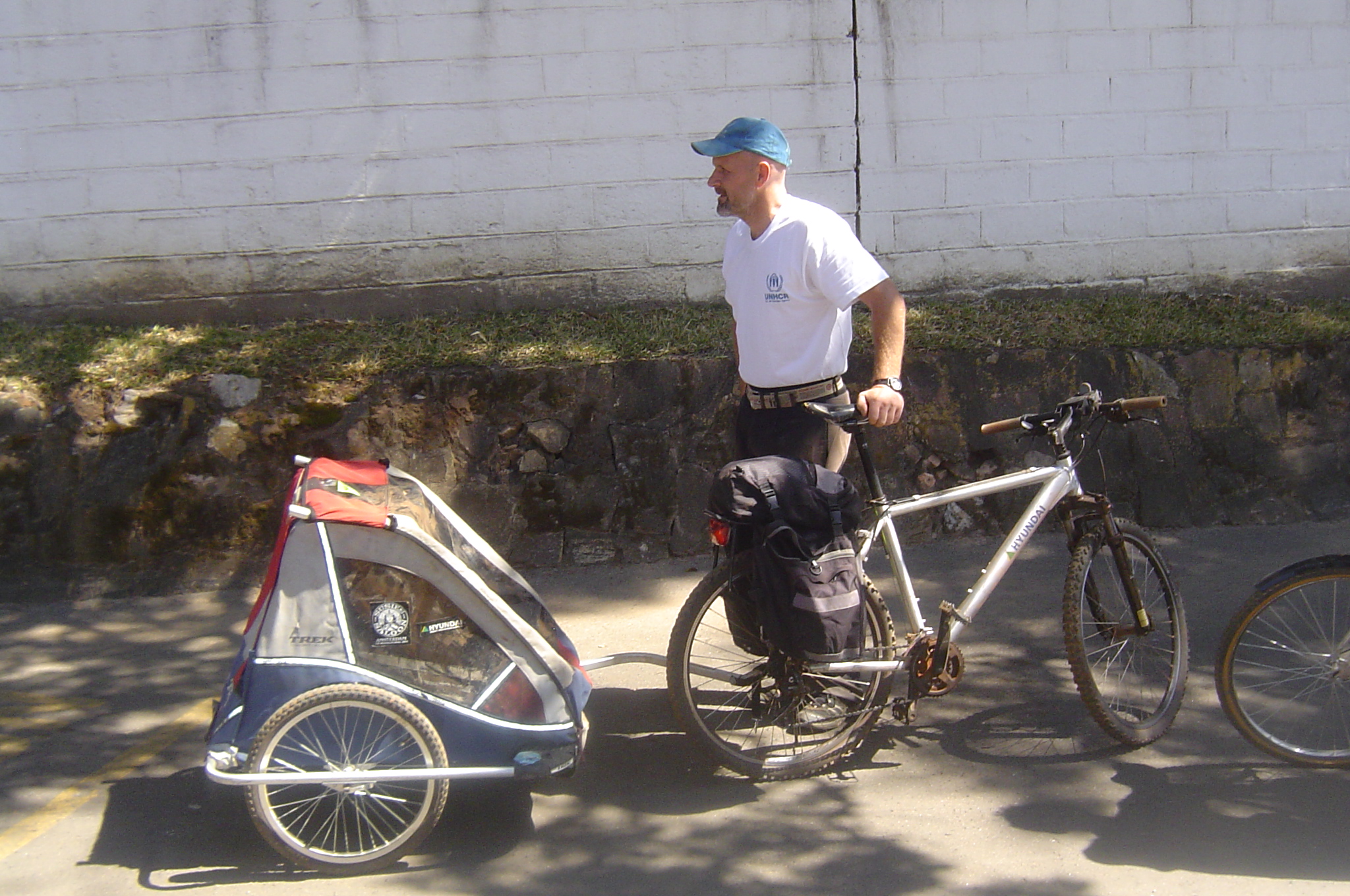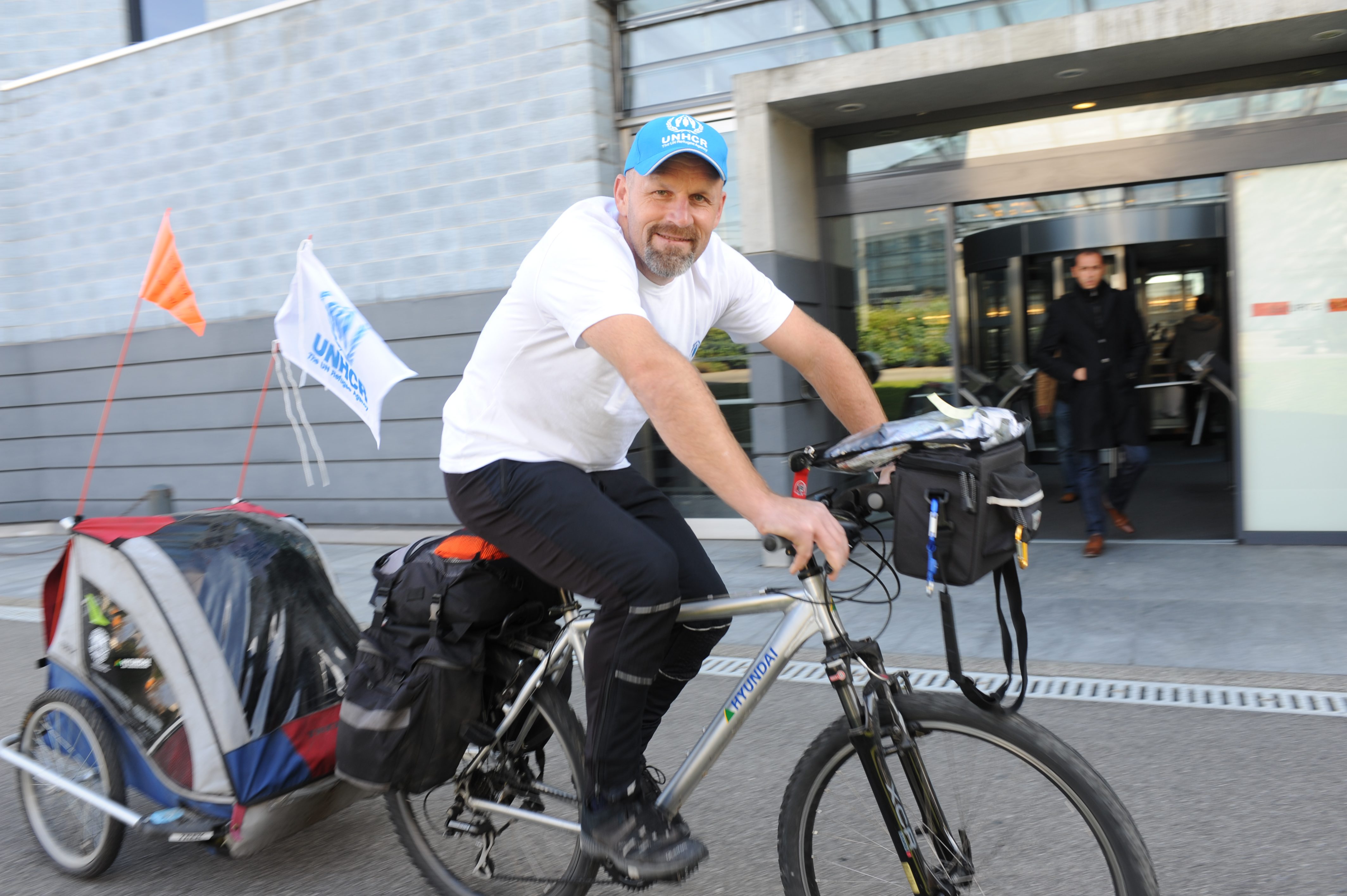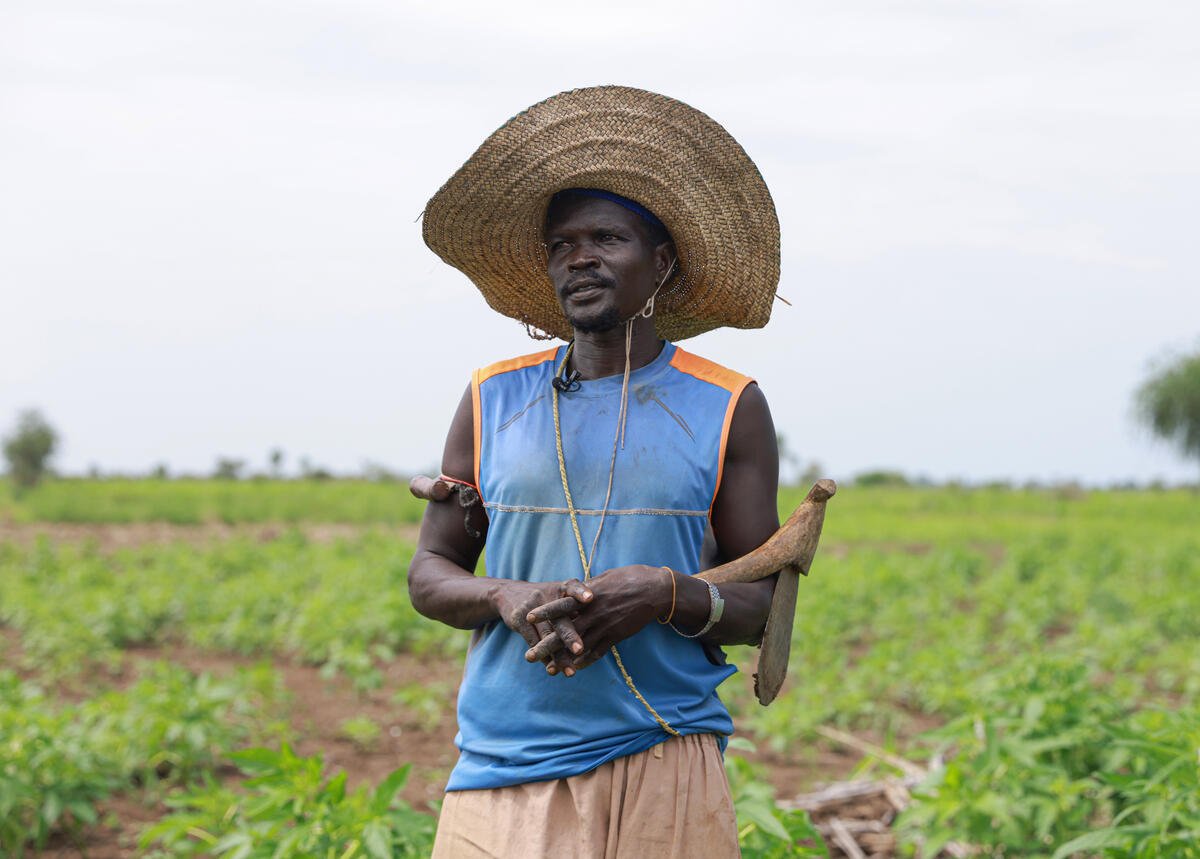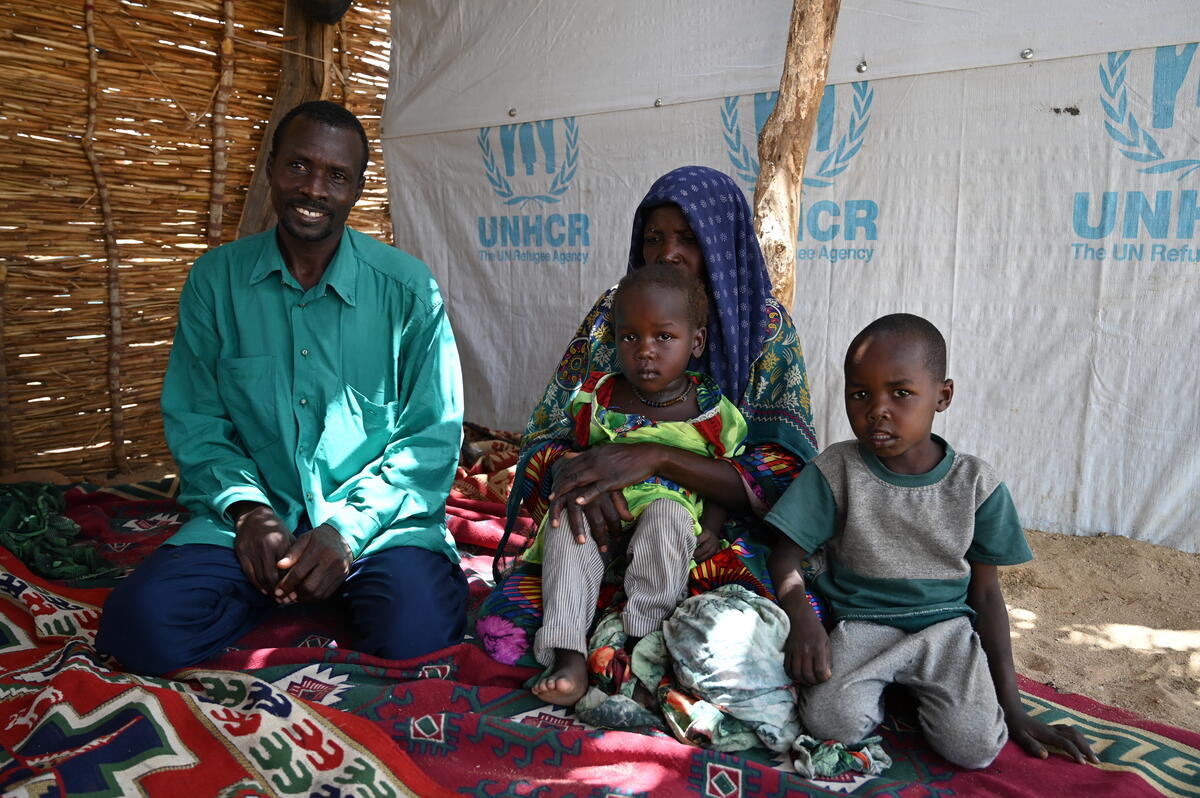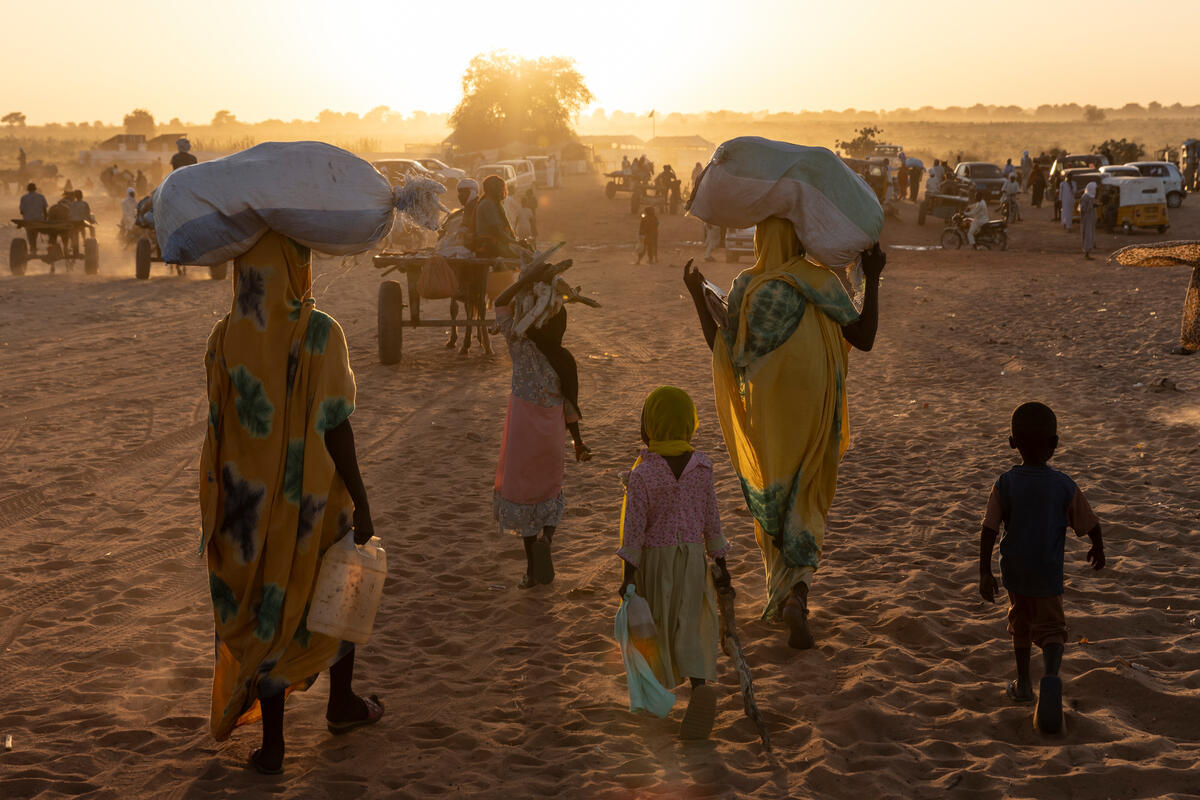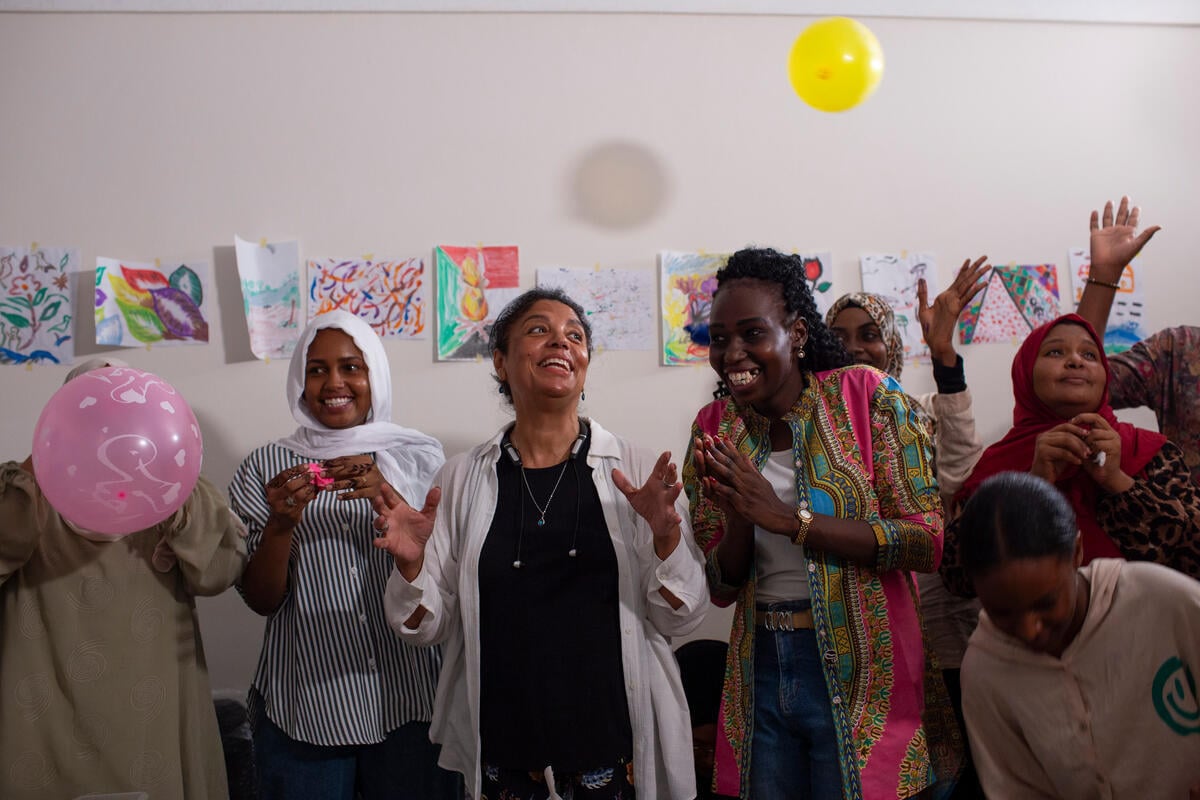World Cup-bound Norwegian cyclist teaches Eritrean refugees about the internet
World Cup-bound Norwegian cyclist teaches Eritrean refugees about the internet

KHARTOUM, Sudan, March 16 (UNHCR) - When Bjorn Heidenstrom met pupils at the Eritrean Refugee School in the Sudanese capital recently, he was so impressed by their thirst for knowledge that he has decided to help bring the internet into their classrooms.
But first the former professional football player, who is cycling through Sudan on his way to South Africa for the World Cup finals in June, wanted to show them how they could use blogs and social media platforms to reach out to people around the world.
Heidenstrom is using his journey to spread awareness among the global football fraternity about the millions of forcibly displaced people in Africa. The 900 children at the crowded school in Khartoum were among the first refugees he had met, after spending recent months lobbying for support and donations of football shirts from professional and amateur clubs around Europe.
"I saw positive eyes, dreaming eyes and I asked myself: 'How can I help these kids?' And I felt I could help them with communication and knowledge," recalled the 41-year-old, who is taking time off from his job as marketing and media manager for Norwegian Premier League football club, Valerenga.
"Then, I asked them: 'How many of you have access to the internet?' No hands in the air! 'How many of you have seen the internet?' Two hands in the air! 'How many of you believe that they can learn something from the internet?' All hands up!!"
Teachers told him that the school had five computers, but they could not afford to pay for internet access, which cost more than 100 Sudanese pounds (US$45) a month. Heidenstrom decided to step in and help, feeling confident that the money can be raised quite quickly.
But he decided that it was best if the students asked for help themselves, through the use of social media. "I felt I should let these people learn something first, rely on their initiative, create a school blog and make a Facebook profile where they can communicate with the entire world."
To get the ball rolling, Heidenstrom spent a recent weekend teaching seven teachers at the Eritrean Refugee School how to create simple blogs and use platforms like Twitter and FaceBook to raise awareness.
"This is a great idea," said Jamal Hassan, a teacher at the school and a refugee himself. "We have learnt how to create a web blog for the school and we will update it every week from a nearby internet café. By doing so, we can show the world what we are doing before we ask for support."
The intrepid Heidenstrom, meanwhile, is confident that when people across the globe learn about the cultural and social life of these refugee children, "they will definitely support them." And he reckons it could become a blueprint for similar schools in other parts of the Sudan or elsewhere.
During his stay in Khartoum, Heidenstrom also crossed the Nile to Omdurman to visit one of Sudan's top football clubs, Al-Merreikh, where he was given a signed shirt. The Norwegian plans to create and display the world's biggest football shirt once he reaches South Africa, using all the jerseys he has collected.
He also spoke to staff from the UN refugee agency which will be giving him logistical and other support as he tours countries like Sudan, Ethiopia, Rwanda, Kenya and South Africa on his bike. "I decided to serve the refugee cause through exploration," he told staff in Khartoum. "We have a great tradition of exploration in Norway, which is represented by the late polar explorer Fridtjof Nansen, who was also the first High Commissioner for Refugees."
Peter de Clercq, UNHCR's representative in Sudan, praised Heidenstrom's efforts to spread awareness about refugees and those helping the forcibly displaced. "We are particularly happy that Bjorn has made it all the way to Sudan, the country with the longest tradition in hospitality for refugees in Africa." The Norwegian is currently in Ethiopia.
The Eritrean Refugee School was established in the 1980s and relies mainly on local community initiatives for funding. UNHCR provides assistance in form of school materials as well as through its implementing partner, Save the Children.
By Ahmed Elhassan in Khartoum, Sudan


